What is a Car Air Filter and Its Function
A car air filter is a key engine component. It blocks dirt, dust, and debris from entering the engine. This ensures clean air mixes with fuel for combustion. A clean air intake means efficient engine performance and smoother driving.
Air filters trap airborne contaminants before they harm the engine. Over time, filters clog and lose efficiency. A dirty filter affects engine power and fuel economy.
Importance of a Clean Air Filter for Your Vehicle
A clean air filter protects your engine from damage. It keeps harmful particles away from engine parts. This reduces wear and tear, extending engine life.
Dirty filters restrict airflow. This forces the engine to work harder, which can lower performance. Regularly replacing the filter ensures smoother operation and better fuel mileage.
How Air Filters Contribute to Engine Efficiency
Air filters ensure the engine gets a proper air-to-fuel mixture. Clean air results in complete combustion. This maximizes engine power and acceleration.
A clogged filter results in poor airflow. This can cause unburned fuel and increase emissions. A fresh filter improves efficiency and keeps emissions low.
Regular air filter maintenance boosts overall engine reliability. It benefits both the environment and your vehicle’s health.
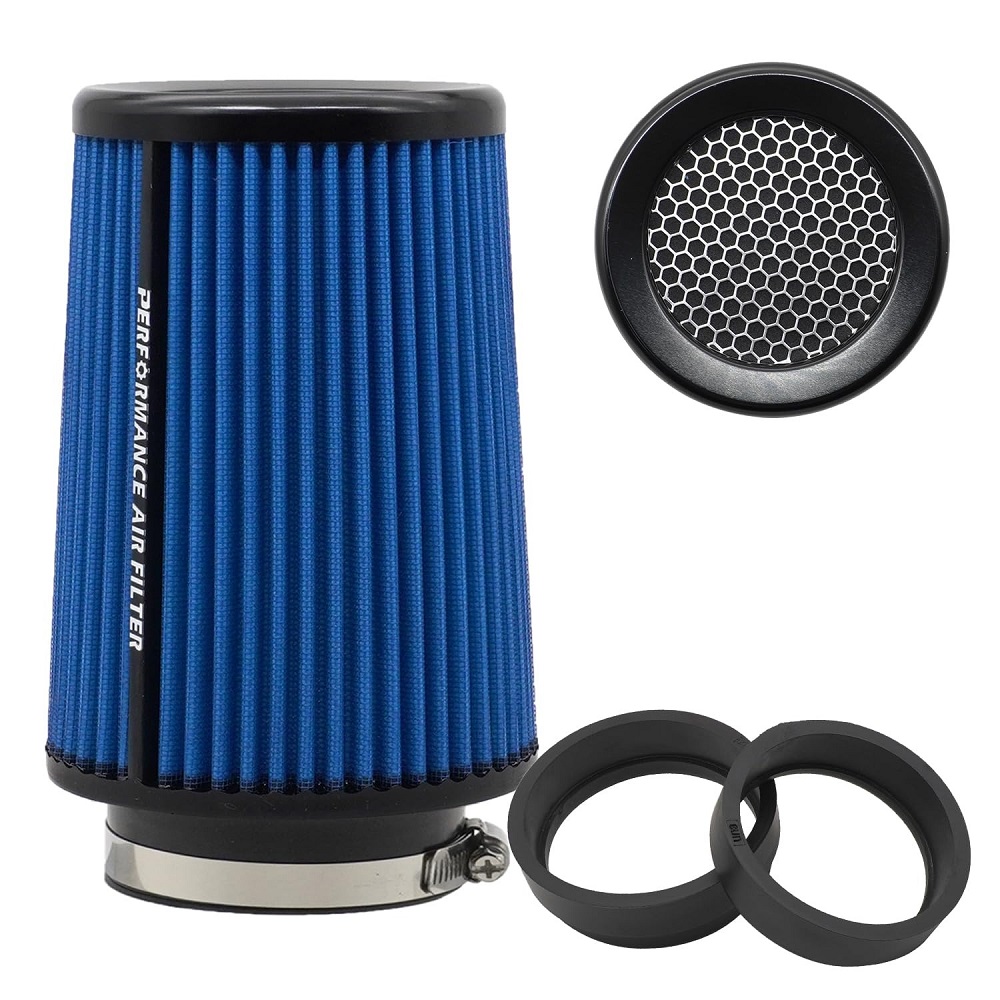
Types of Car Air Filters
Choosing the right car air filter is essential for your vehicle’s performance. Understanding the types of air filters available helps you make an informed decision. Below are the most common types of car air filters and their features.
Paper Air Filters
Paper air filters are the most common type in vehicles today. They are made from pleated paper material. These filters are designed to block dirt, dust, and debris effectively. They are affordable and easy to replace. However, they are not reusable and need regular replacement when clogged.
Foam Air Filters
Foam air filters are made from polyurethane foam. They are designed to capture fine particles. These filters work well in dusty or off-road conditions. Foam filters can be cleaned and reused with proper maintenance. However, they may not last as long as some other options.
Cotton Air Filters
Cotton air filters use layers of cotton fabric to trap particles. They provide better airflow compared to paper filters. Cotton filters are durable and washable, making them reusable for a long time. They are often preferred for high-performance engines but can be more expensive.
Reusable vs Disposable Air Filters
Reusable air filters, like foam and cotton types, can be cleaned and used again. They are cost-effective in the long run and eco-friendly. Disposable air filters, like paper ones, need to be replaced regularly. They are more convenient but generate more waste. Choosing between reusable and disposable filters depends on your budget and maintenance preferences.
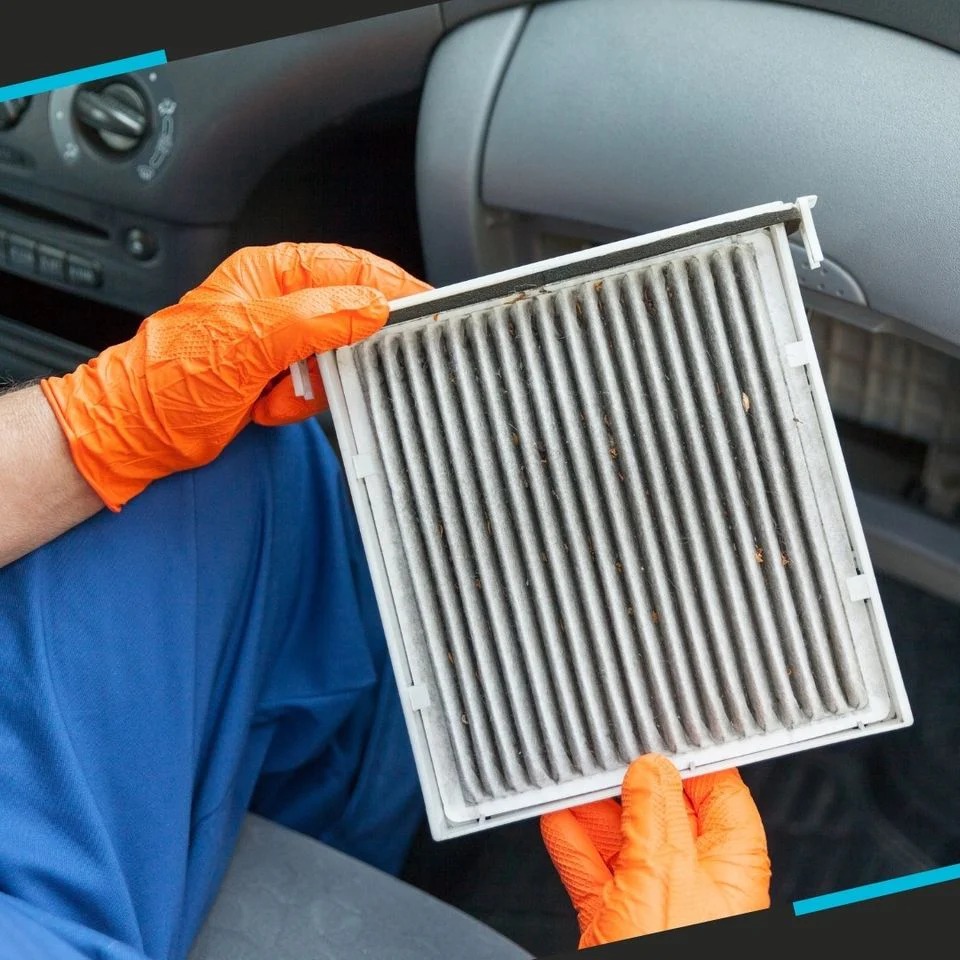
Signs Your Air Filter Needs Replacement
Recognizing when to replace your car air filter is vital for vehicle health and performance. A dirty air filter can cause various problems, impacting efficiency and engine reliability. Below are common signs that your air filter may need attention.
Reduced Engine Performance and Power
A clogged air filter restricts airflow to the engine. Limited airflow reduces engine power and efficiency. If you notice sluggish acceleration or decreased performance, it may be time to check the filter.
Decrease in Fuel Efficiency
An improper air-to-fuel mixture due to a dirty filter causes your engine to burn more fuel. This increases fuel consumption and affects gas mileage. Replacing the filter can restore fuel efficiency.
Unusual Engine Noises
A dirty air filter can lead to abnormal engine sounds such as coughing or popping. Restricted airflow often makes the engine work harder, creating these noises. Pay attention to any unusual sounds indicating air filter issues.
Visible Dirt or Damage to the Filter
Inspect your air filter for visible dirt, debris, or damage. A heavily clogged or torn filter cannot effectively protect your engine. Regular visual checks help identify when replacement is necessary.
Replacing a worn-out filter promptly avoids long-term engine issues. Identifying these signs ensures your vehicle operates smoothly and efficiently.
How to Inspect and Replace an Air Filter
Maintaining your car’s air filter is essential for engine performance and vehicle efficiency. Inspecting and replacing the filter regularly saves money and prevents costly repairs.
Steps to Inspect an Air Filter
- Locate the Air Filter Housing: Open your car’s hood and find the air filter box. It’s usually near the engine.
- Open the Housing: Use a screwdriver or your hands to unclip or unscrew the filter cover.
- Remove the Filter: Take out the air filter carefully without damaging the housing.
- Examine the Filter: Look for dirt, dust, tears, or clogging. A clean filter appears bright and even.
- Check the Housing: Ensure the filter box has no debris. Dirt inside could damage your engine.
Inspecting the air filter every 10,000 to 15,000 miles ensures peak engine performance.
When and How to Replace Your Car Air Filter
- Replace Based on Mileage: Change your air filter as recommended in your owner’s manual, typically every 15,000 to 30,000 miles.
- Purchase the Right Filter: Choose a replacement filter that matches your car’s make and model.
- Remove Old Filter: Open the housing and discard the old filter per inspection steps.
- Install New Filter: Insert the new filter into the housing. Ensure it aligns properly.
- Reassemble Housing: Close the filter box securely using clips or screws.
Replacing a clogged filter promotes engine health, improves fuel economy, and reduces emissions. Regular checks and timely replacements enhance your vehicle’s performance and longevity.
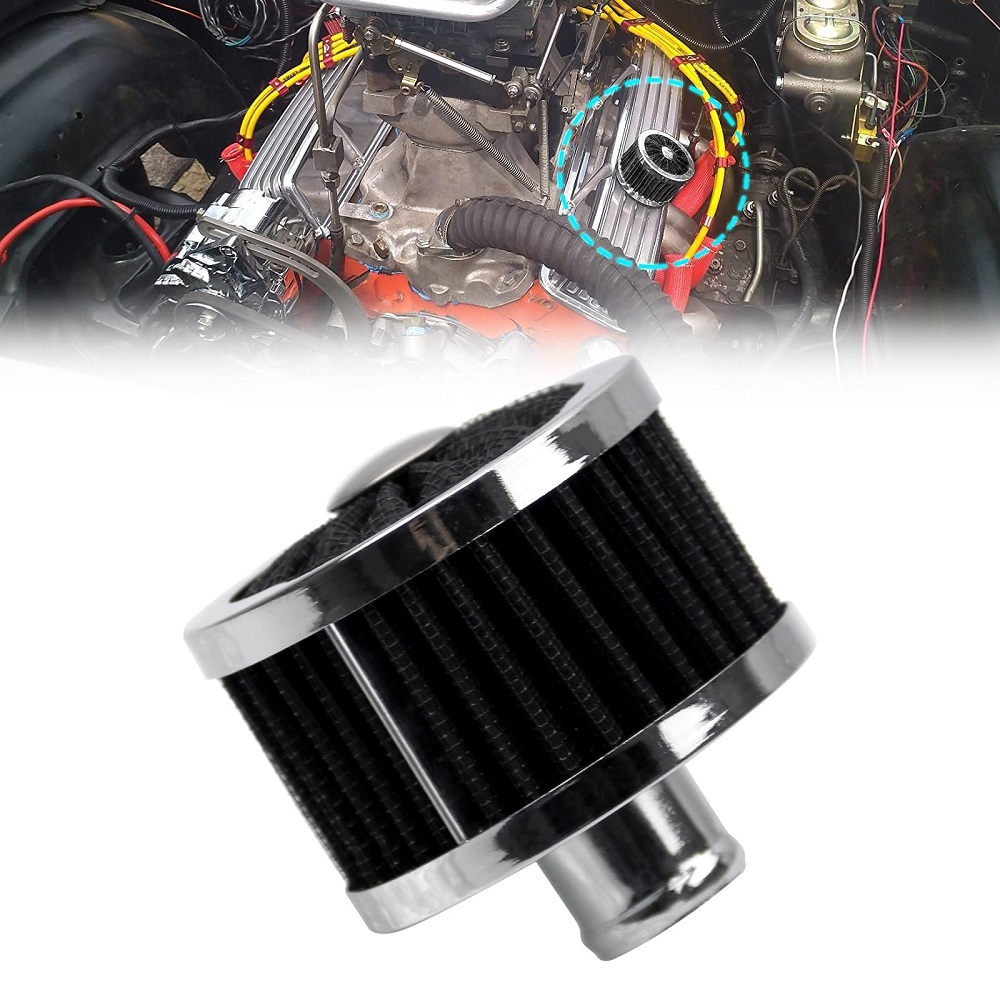
Factors to Consider When Choosing an Air Filter
Selecting the right car air filter is crucial for optimal engine performance. Evaluating key factors ensures you pick the best filter for your needs. Below are the vital considerations to guide your decision.
Compatibility with Your Vehicle
Always choose an air filter that fits your car’s specifications. Check your owner’s manual for the correct size and type. Using a mismatched filter can affect engine performance and cause issues. Compatibility ensures proper function and efficient filtration.
Driving Environment and Conditions
Consider the conditions where you drive most frequently. Dusty or off-road environments demand durable filters like foam or reusable options. For city driving, standard paper filters may be sufficient. Tailor the filter choice to match your regular driving conditions for effective performance.
Performance Requirements
High-performance engines need filters with better airflow, such as cotton air filters. These filters enhance acceleration and overall engine power. For everyday use, paper filters provide affordability and reliability. Select a filter based on your engine’s needs and driving style.
Budget Considerations
Car air filter come in various price ranges. Disposable options are generally cheaper upfront but require frequent replacements. Reusable filters cost more initially but save money in the long run. Balance your budget with maintenance requirements to make a smart investment.
Taking these factors into account will help maintain your vehicle’s health and efficiency. A well-chosen filter leads to better driving experiences and fewer engine problems.
Benefits of Regularly Replacing Your Air Filter
Replacing your car air filter regularly keeps the engine strong and improves overall vehicle efficiency. Below are the key benefits you can expect from timely air filter replacement.
Enhanced Engine Lifespan
A clean air filter protects the engine from harmful particles like dust and debris. This reduces wear and tear on vital engine components. Regular replacement ensures smooth operations and minimizes internal engine damage. Prolonged engine life means fewer repairs and greater vehicle longevity.
Improved Fuel Economy
A fresh air filter ensures the correct air-to-fuel mixture in the engine. This results in efficient combustion and optimizes fuel usage. A clogged filter forces the engine to consume more fuel, reducing mileage. Replacing the air filter boosts fuel efficiency and saves money over time.
Reduced Emissions
A clean air filter helps the engine burn fuel effectively, reducing unburned particles. This leads to lower emission levels and benefits the environment. Dirty filters cause incomplete combustion, increasing harmful gases. Regular replacements ensure your vehicle complies with emission standards and runs cleaner.
Frequent air filter maintenance improves engine health, enhances driving performance, and supports eco-friendly operation.
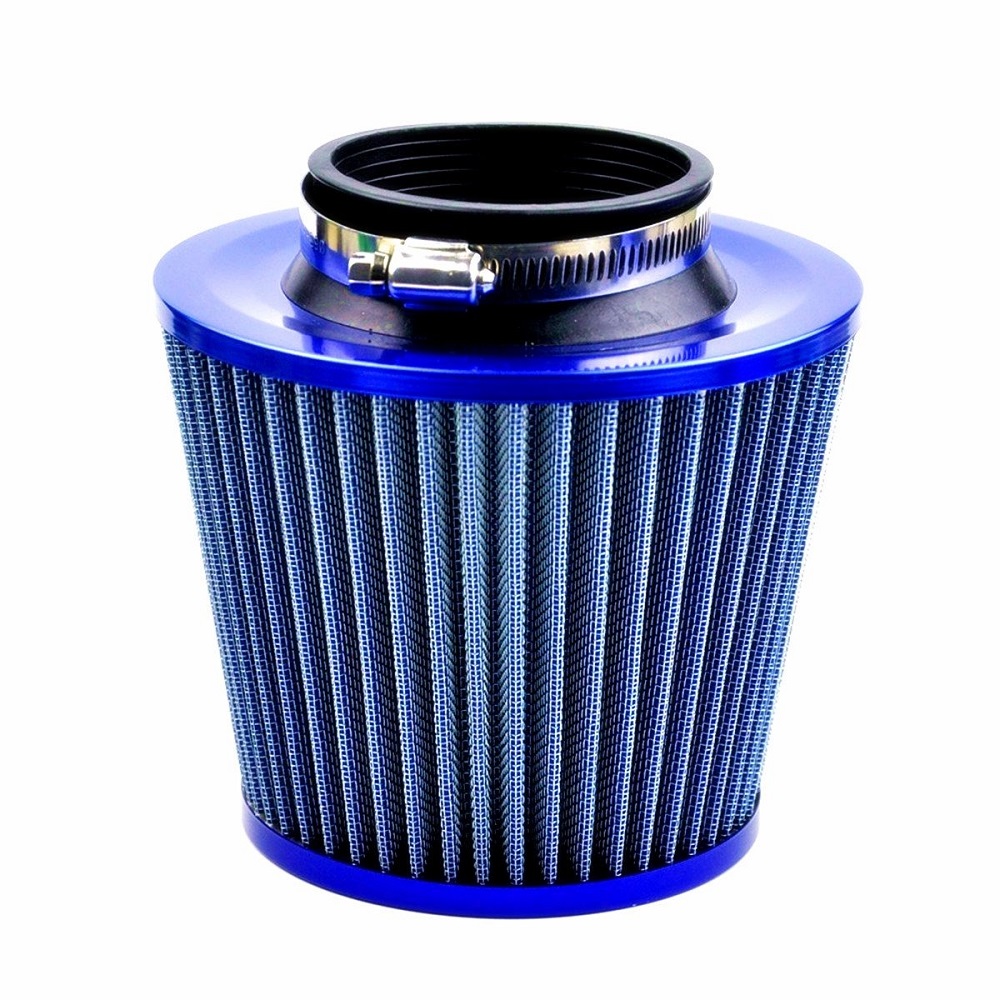
Comparing Popular Air Filter Brands and Models
Choosing the right car air filter brand ensures optimal performance and longevity. Here’s a comparison of popular brands and their standout features.
Key Features of Leading Brands
- K&N Filters:
- Made with high-flow cotton material for better airflow.
- Reusable and washable, offering long-term cost savings.
- Suitable for high-performance engines.
- Bosch:
- Features high-grade materials for efficient filtration.
- Designed for durability and precise fit.
- Great for standard driving conditions.
- Fram:
- Known for reliable quality at affordable prices.
- Paper filters optimized for clean air intake.
- Easy to install and widely available.
- ACDelco:
- Ideal for GM vehicles but fits other makes too.
- Durable construction ensures effective filtration.
- Meets OEM standards for performance.
- Wix:
- Uses premium pleated filters for maximum dirt capture.
- Offers a variety of sizes and options.
- Trusted for off-road and tough conditions.
Customer Reviews and Recommendations
- K&N Users: Praised for durability, but some find cleaning a hassle.
- Bosch Lovers: Appreciate the build quality and perfect fit.
- Fram Buyers: Value affordability, although frequent replacements are needed.
- ACDelco Fans: Highlight reliability and excellent compatibility with GM vehicles.
- Wix Enthusiasts: Recommend it for extreme conditions due to its superior dirt resistance.
Understanding the features and feedback helps you find the right air filter brand. Select wisely for a better driving experience.
Maintenance Tips for Prolonging Air Filter Life
Proper maintenance of your car air filter ensures its longevity and performance. Regular care helps you save money and avoid frequent replacements. Below are some useful tips for maintaining your air filter effectively.
Cleaning Techniques for Reusable Filters
Reusable filters, such as foam and cotton, need proper cleaning to maintain functionality. Follow these cleaning steps:
- Remove the Filter: Take out the air filter carefully from its housing.
- Shake Off Loose Dirt: Gently tap the filter to remove dust and debris.
- Wash with Proper Solution: Use a recommended cleaning solution for foam or cotton air filters.
- Rinse Thoroughly: Rinse the filter under running water to remove cleaning solution and dirt.
- Dry Completely: Let the filter air-dry fully before reinstallation.
- Apply Oil (if Needed): For oiled cotton filters, apply a thin layer of filter oil.
Avoid over-cleaning, as it can damage the filter material. Clean as per the manufacturer’s recommendations.
Best Practices for Regular Maintenance
Maintaining both reusable and disposable filters regularly extends their life. Here are some key practices:
- Check Mileage Guidelines: Inspect or replace the filter as recommended in the car owner’s manual.
- Inspect During Oil Changes: Check the air filter when changing your car’s oil for added convenience.
- Monitor Driving Conditions: If driving in dusty or polluted areas, inspect the filter more often.
- Seal the Housing Properly: Ensure the air filter housing is securely closed to block contaminants.
- Avoid Overloading the Filter: Don’t let the filter get excessively dirty before cleaning or replacing.
With proper cleaning and maintenance, your air filter can last longer and keep your engine healthy. Regular checks and care contribute to better fuel efficiency and a smoother driving experience.
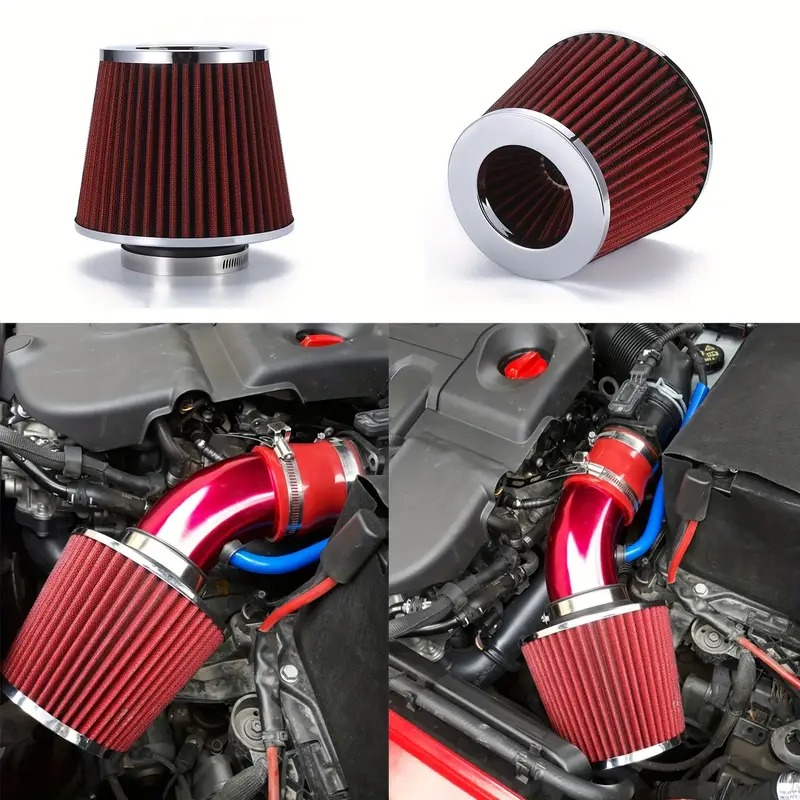
Selecting the Right Car Air Filter
Prioritize Quality and Compatibility
In conclusion, selecting the right car air filter is essential for optimal engine performance and longevity. The choice between standard, high-performance, or cleanable options must be made based on your driving habits and vehicle requirements. Always prioritize quality and compatibility, ensuring that the filter meets the standards set by manufacturers. A well-chosen air filter will keep your engine running smoothly and efficiently, providing excellent protection against dirt and debris.
Regular Maintenance is Key
Establishing a routine for checking and replacing your air filter will contribute significantly to your vehicle’s health. By being proactive about maintenance, problems like reduced performance and lower fuel efficiency can be avoided. Taking the time to inspect and maintain your air filter enhances your driving experience and prolongs the life of your car. Consistent care ensures that the air entering your engine remains clean, allowing it to perform at its best.
Enjoy the Benefits of Clean Air
Ultimately, the benefits of investing in a quality air filter extend beyond just engine performance. A clean air filter contributes to a smoother ride, better fuel efficiency, and reduced emissions. By taking steps to select and maintain the right air filter, you contribute to a healthier environment and a more enjoyable driving experience. Embrace the commitment to car care by prioritizing quality air filters and investing in the longevity of your vehicle, enhancing every journey ahead.
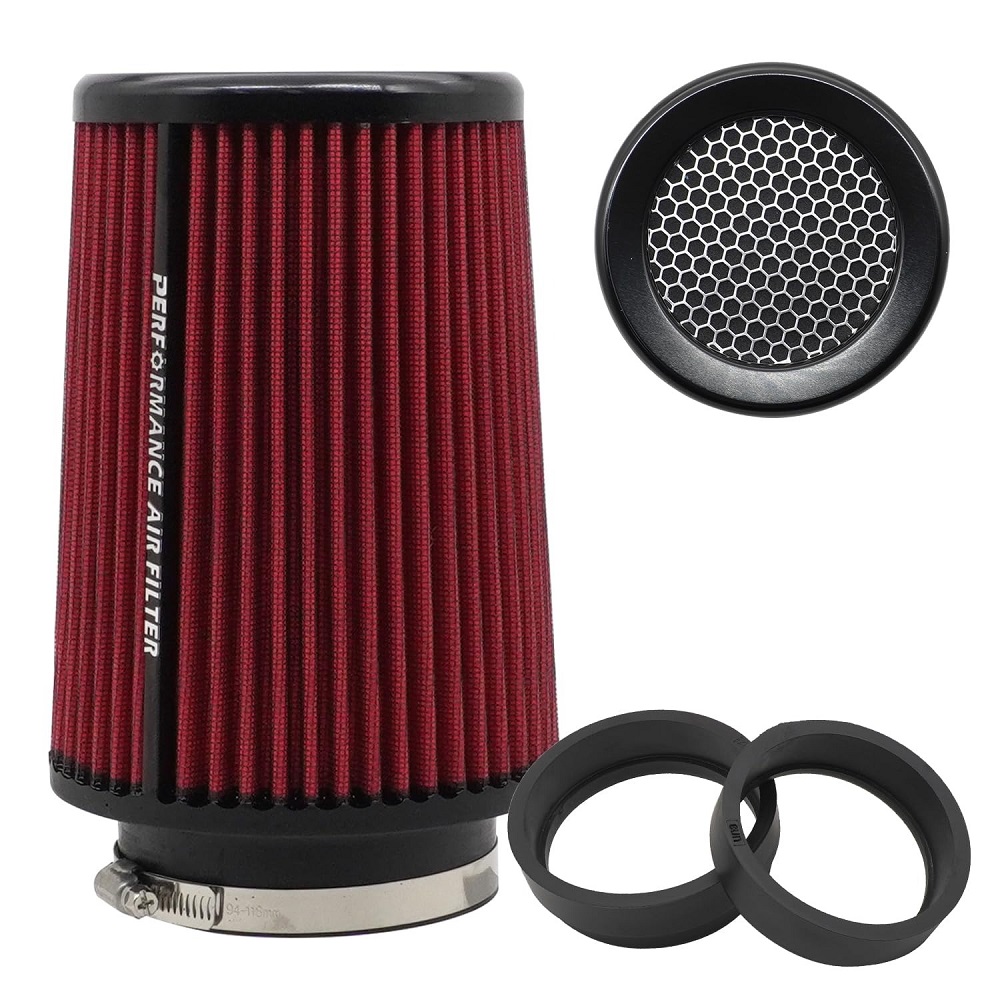
Leave a Reply